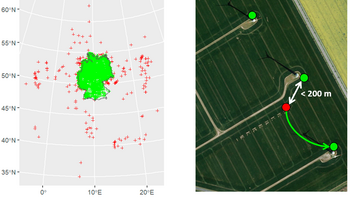

The heating sector in Germany is to be decarbonised during the coming decades and is thus facing major changes: There is no longer any perspective for natural gas and heating oil, which are still the dominant energy sources today, in a climate-neutral heat supply. This increases the demand for renewable heat and the pressure on land use, e. g. for heat from biomass or solar thermal energy. This study examines the potential impacts of the “heat transition” on land use and how negative impacts on nature conservation can be avoided.
The energy transition can only succeed if all sectors are included in the transformation process. This includes the heating sector in particular, as it accounts for more than half of the final energy demand in Germany. While the electricity sector is currently the focus of the energy transition, the heating and cooling transitions in Germany have so far fallen short of expectations. The share of renewable energies in final energy consumption for heating and cooling has stagnated at less than 15 % for years. The heat transition can only succeed with a significant increase in this share. In order to prevent or minimise conflicts, the concerns of nature conservation and landscape have to be integrated into the eventual target system and the related instruments of the heat transition from the outset.
The aim of the project is to create an orientation framework and a knowledge base for integrating nature conservation concerns into the development of future heating and cooling supply sector. A central element here is the reduction and management of the land requirements that go hand in hand with the demand for renewable heat supply.
HIC Hamburg Institut Consulting GmbH
Paul-Nevermann-Platz 5, D-22765 Hamburg
Paula Möhring
moehring(at)hamburg-institut.com
Bodensee-Stiftung / Lake Constance Foundation
Fritz-Reichle-Ring 4, D-78315 Radolfzell
Dipl. Forester Dimitri Vedel
dimitri.vedel(at)bodensee-stiftung.org
Federal Agency for Nature Conservation (BfN)
Georgia Erdmann
georgia.erdmann(at)bfn.de
15.02.2023
Weiter

11.10.2022
Weiter

03.02.2022
Weiter
